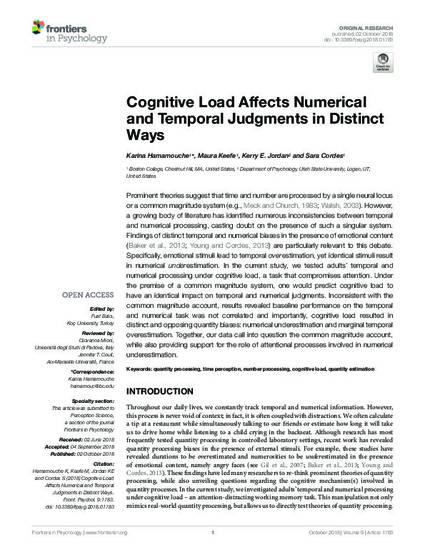
Prominent theories suggest that time and number are processed by a single neural locus or a common magnitude system (e.g., Meck and Church, 1983; Walsh, 2003). However, a growing body of literature has identified numerous inconsistencies between temporal and numerical processing, casting doubt on the presence of such a singular system. Findings of distinct temporal and numerical biases in the presence of emotional content (Baker et al., 2013; Young and Cordes, 2013) are particularly relevant to this debate. Specifically, emotional stimuli lead to temporal overestimation, yet identical stimuli result in numerical underestimation. In the current study, we tested adults’ temporal and numerical processing under cognitive load, a task that compromises attention. Under the premise of a common magnitude system, one would predict cognitive load to have an identical impact on temporal and numerical judgments. Inconsistent with the common magnitude account, results revealed baseline performance on the temporal and numerical task was not correlated and importantly, cognitive load resulted in distinct and opposing quantity biases: numerical underestimation and marginal temporal overestimation. Together, our data call into question the common magnitude account, while also providing support for the role of attentional processes involved in numerical underestimation.
